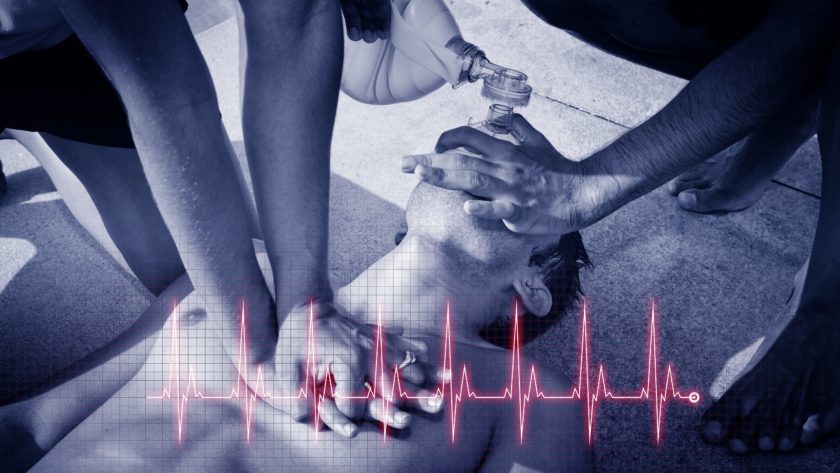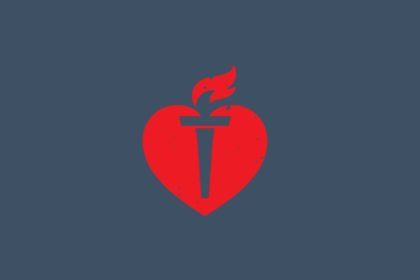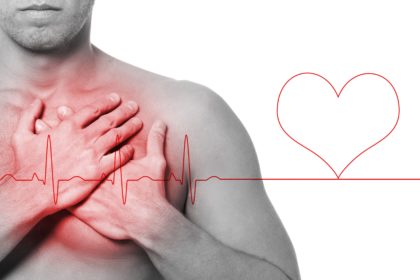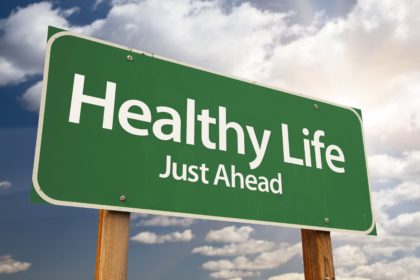In our last segment, we talked about heart attacks and how the warning symptoms are not always immediate and intense, but in fact, start slowly and persist for hours, days, weeks, or even months before a heart attack. Many people think heart attacks are the same thing as a cardiac arrest, which come on suddenly without warning. Here are three things you may not know…
1. Sudden Cardiac Arrest vs Heart Attack — They’re Different
According to the American Heart Association, one in over 380,000 people in the United States each year suffer from out-of-hospital sudden cardiac arrest and less than 7% survive.
Cardiac arrest is reversible in most victims if it’s treated within a few minutes. Treatment includes CPR and defibrillation. However, the following five most common places for cardiac arrest may make immediate treatment difficult:
- Golf courses
- Airports
- Shopping malls
- Stadiums
- Jails
Sudden cardiac arrest (SCA) and “heart attack” are terms that are often used interchangeably, but they are not the same.
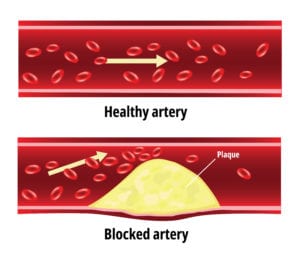
A heart attack is when an artery is blocked and restricts oxygen-rich blood from reaching a section of the heart. If the blocked artery isn’t reopened quickly, the part of the heart normally nourished by that artery begins to die.
The degree of blockage (partial or complete) will determine the extent of the heart damage, which is permanent and irreversible.
- A NSTEMI (non-ST-elevation myocardial infarction) heart attack usually results from severe narrowing of the coronary artery.
- A STEMI (ST-elevation myocardial infarction) heart attack results from a complete and prolonged blockage. Get the FREE lifesaving eGuide, “How to Stop a Heart Attack“.
- Sudden cardiac arrest is a condition when the heart malfunctions unexpectedly and suddenly beats irregularly, then stops beating.
Sudden cardiac arrest occurs suddenly and unlike a heart attack, it usually strikes without any warning. The heart stops pumping and blood does not reach the brain, lungs, and other vital organs.
Seconds later, the victim loses consciousness and has no pulse. Death occurs within minutes if the victim does not receive treatment.
***
To summarize, sudden cardiac arrest is an ‘electrical’ problem, and a heart attack is a ‘plumbing’ (circulation) problem.
***
2. Heart Attack and Sudden Cardiac Arrest Are Different, But Linked
- Sudden cardiac arrest can occur after a heart attack, or while recovering.
- Heart attacks increase the risk for sudden cardiac arrest, but most heart attacks do not lead to sudden cardiac arrest. However, when sudden cardiac arrest does occur, the cause is generally linked to a heart attack.
- After a heart attack and muscle tissue is damaged, the heart has to work harder to circulate blood. Like any muscle tissue, when it works harder, it grows bigger in size and thickness. This remodeling of the heart can be restrictive and affect its electrical system.
Sudden cardiac arrest triggers may include the following:
- Physical (or extreme emotional) stress
- Arrhythmias
- Drug/alcohol abuse
- Chronic kidney disease
- Cardiomyopathy — This is a disease of the heart muscle causing it to lose its ability to pump blood to the rest of the body effectively.
- Scar tissue — Scar tissue from damaged muscle, e.g., as a result of a heart attack, excess stress on the heart, or inflammation, is not like heart muscle and cannot contract, so it cannot help the heart pump blood.
3. Sudden Cardiac Arrest Risk Can Be Reduced
Since sudden cardiac arrest is an “electrical” problem, not a clogged artery problem, people often think there’s nothing one can do about SCA. That is, its occurrence is out of their control, and no amount of cardiac rehabilitation or lifestyle change will matter. But nothing could be more wrong.
The Journal of the American Medical Association (JAMA) published a 26-year study of nearly 82,000 women that showed you can reduce your risk for sudden cardiac death. In the majority of people, coronary heart disease is usually the underlying cause of SCD and this study showed that a low-risk, healthy lifestyle is associated with a low risk of sudden cardiac death.
What’s a Low-Risk Lifestyle?
The women that followed all four of the following lifestyle factors lowered their risk of sudden cardiac arrest by 92% compared to those who did not adhere any lifestyle changes. Adherence to an overall healthy lifestyle may be an effective strategy to prevent sudden cardiac death.
- Smoking — Not currently smoking
- Exercise — Regular participation in moderate or vigorous intensity activity for 30 minutes per day or longer.
- Diet — Follow a prudent eating plan (whole food, plant-centered) that includes:
- High intake of vegetables, fruits, whole grains, legumes
- Optimal ratio of heart-healthy monounsaturated (e.g., nuts, avocado) to unhealthy saturated fat (e.g, animal products)
- Low intake of red and processed meat
- Daily intake of omega-3 fats (e.g., flaxseed, chia seeds, low mercury fish, like salmon)
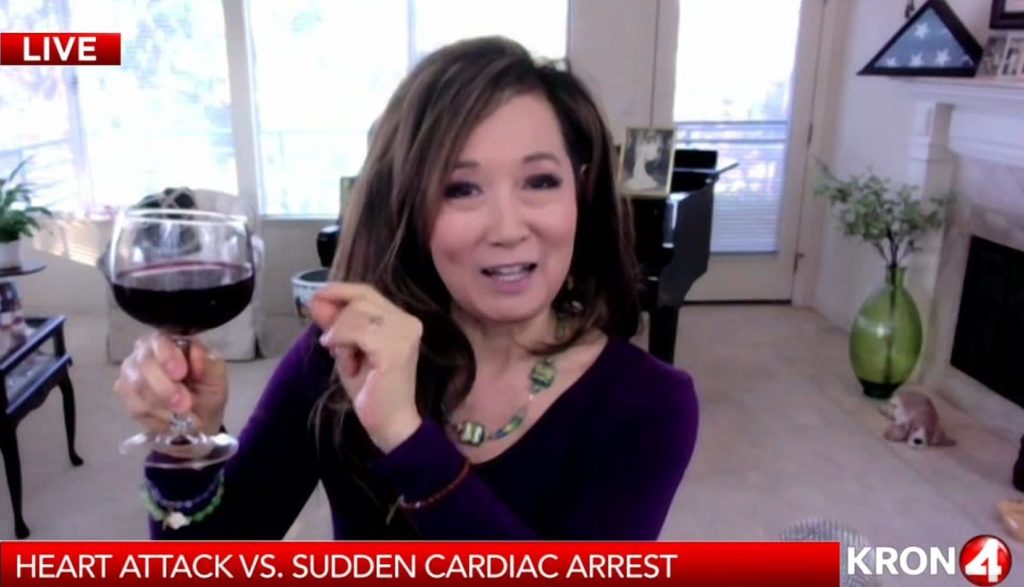
- Moderate intake of alcohol (1/2 to 1 drink per day) — One standard serving of alcohol is:
- 12 oz beer (~5% alcohol)
- 5 oz wine (~12% alcohol)
- 1.5 oz liquor, 80 proof (~40% alcohol)
- 1 oz liquor, 100 proof (~50% alcohol)
- Moderate intake of alcohol (1/2 to 1 drink per day) — One standard serving of alcohol is:
*Less than 40% of American women aged 45 to 74 years maintain a BMI of less than 25 and just 22% exercise regularly at a light to moderate intensity.
![]() Karen’s Fit Tip: Know how to stop a heart attack to reduce heart damage, follow a low-risk lifestyle, know your risk for sudden cardiac arrest, and have a plan if it occurs. Get your FREE eGuide: “How to Stop a Heart Attack”. [My Heart Story]
Karen’s Fit Tip: Know how to stop a heart attack to reduce heart damage, follow a low-risk lifestyle, know your risk for sudden cardiac arrest, and have a plan if it occurs. Get your FREE eGuide: “How to Stop a Heart Attack”. [My Heart Story]

